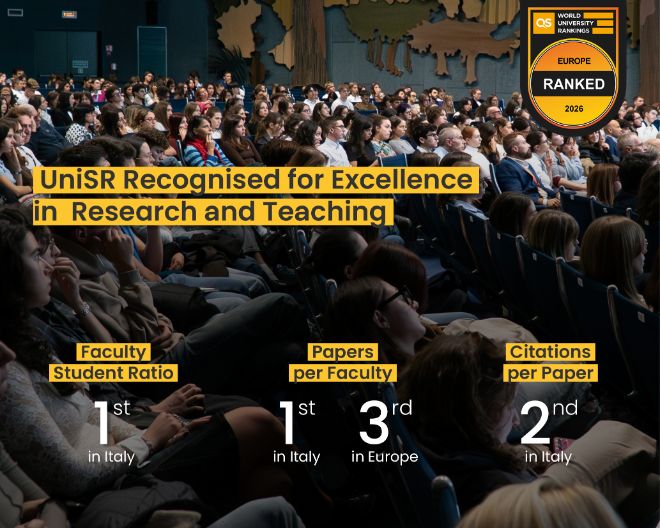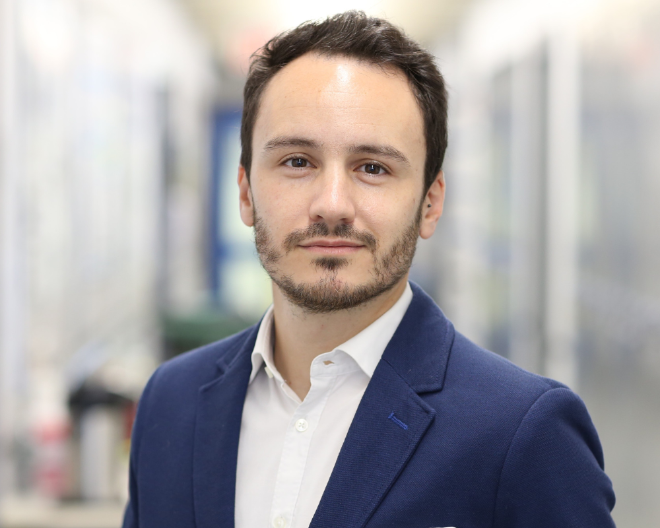Prof. Luca Guidotti awarded the Distinguished Award in Hepatitis B Research
0/resolutions/res-l992x10000/Guidotti_premio_HBV_Kobe_Japan_UniSR-(2)0.png)
Prof. Luca Guidotti, Full Professor of General Pathology at UniSR and deputy scientific director of the IRCCS San Raffaele Hospital, awarded the Distinguished Award in Hepatitis B Research for his fundamental discoveries in the field of the pathogenesis of hepatitis B and the development of antivirals.
Today, 19 September, the HBV International meeting in Kobe, Japan, awards Prof. Luca Guidotti, UniSR Full Professor of General Pathology and deputy scientific director of the IRCCS San Raffaele Hospital, with the 2023 Distinguished Award in Hepatitis B Research for his pioneering research activity, which led to fundamental discoveries in the field of the pathogenesis of hepatitis B virus (HBV) infection and the development of antivirals for the treatment of chronic hepatitis.
Inaugurated in 1985 by the two famous scientists Jesse Summers (member of the American National Academy of Sciences) and Harold Varmus (ex-director of the National Institute of Health (NIH), also in the United States), the HBV International meeting - which revolves around Asia, America and Europe - annually brings together hundreds of internationally renowned scientists who study different aspects of HBV infection, from molecular virology to pathogenesis and immunology, up to the most recent therapeutic advances.
A technical committee of 30 international scientists has been established for 5 years and votes on the lifetime achievement award, designating researchers who have made fundamental discoveries in their profession. This year, Professor Guidotti was unanimously voted for his commitment in the field of pathogenesis and the development of antivirals against HBV.
0/resolutions/res-l1920x10000/Guidotti_premio_HBV_Kobe_Japan_UniSR-(1)0.png)
Luca Guidotti
Professor Luca Guidotti is an internationally renowned virologist and immunologist. He worked for more than twenty years at the Scripps Research Institute in La Jolla, California and is currently Full Professor of Pathology at the Vita-Salute San Raffaele University and deputy scientific director of the IRCCS San Raffaele Hospital, where he also holds the role of head of the Immunopathology laboratory in the Division of Immunology, Transplantation and Infectious Diseases.
“My interest in the hepatitis B virus began in the early nineties, together with Prof. Frank Chisari at the Scripps Research Institute in California. At the time, little was known about this virus, but new research horizons were opened up thanks to the creation of a genetically modified mouse model that was able to replicate the virus. This single discovery has allowed the understanding of the disease mechanisms underlying HBV infection and, above all, has strongly accelerated the development of some antivirals (the so-called nucleotide analogues that inhibit the viral polymerase) which have saved - and still save today - millions of lives"
says Professor Guidotti.
“It is starting from those years of scientific and cultural ferment that I decided to dedicate my career to the study of HBV which, let us remember, in its chronic form still causes at least one million deaths a year”.
Luca Guidotti has published in the most prestigious international scientific journals such as Cell, Nature, Nature Medicine and Science and has won important funding from the American National Institute of Health (NIH) and the European Research Council (ERC).
/resolutions/res-l1920x10000/Guidotti_premio_HBV_Kobe_Japan_UniSR-(1).jpg)
Hepatitis B: the contribution of Luca Guidotti
The numerous grants mentioned above underline how, throughout his career, Guidotti has been a key figure in HBV research, defining important aspects of the virology, pathogenesis and immunology of this virus, as well as contributing to the development of several drugs today in the clinic.
“The absence of a curative therapy against HBV is a huge problem: in the world there are still more than 300 million carriers of chronic hepatitis B, an infection that is the first cause of liver cancer in the world. The vaccines in use are able to prevent the infection but not to cure the chronic infection, for which there are few antiviral drugs (as mentioned above the nucleotide analogues). As with anti-HIV drugs, these antivirals must be taken for life to avoid dangerous viral rebound and liver disease. This is why developing new, more effective drugs against HBV is an absolute health priority,” says Guidotti.
In recent years, Guidotti and his collaborators have identified a new class of antivirals that could contribute to a definitive cure for chronic hepatitis B: small molecules that can be administered orally that prevent the formation of the viral capsid and, consequently, the replication of the virus. “The development of these drugs is currently being developed in collaboration with an American biotech company” concludes Guidotti “and it is expected that human trials can begin in just over a year”.
You might be interested in

UniSR ranked 1st in Italy for Research and Teaching
/resolutions/res-c660x528/Veschetti_Cariplo_P.-Aeruginosa_UniSR-(1).jpg)
Uncovering the hidden role of bacterial microRNAs in chronic respiratory diseases

A New Approach to Enhance Immunotherapy in Multiple Myeloma

